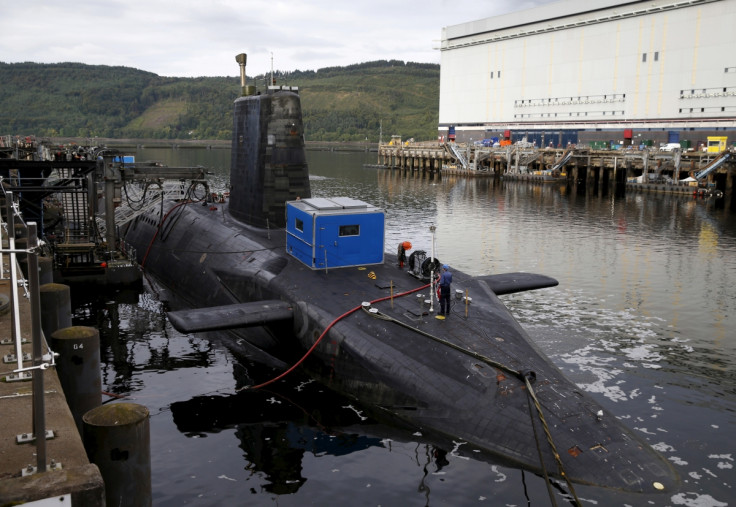Trident nuclear-deterrent subs seen facing threat from underwater drones

Rapidly advancing underwater drone technology could pose a threat to Britain's nuclear deterrent programme, an expert has warned. The chief executive of the British American Security Information Council (Basic), Paul Ingram, is reported to have opined that the drones could make the Trident nuclear submarines "vulnerable".
Submarines have been considered one of the most reliable forms of stealth warfare. Given their ability to remain undetected, they have been used extensively in various pre-emptive attacks. The Trident replacement submarines are also required to function as quietly as possible.
However, underwater drones are now believed to come with sonar and satellite fixtures enabling them to detect even the most silent and stealthiest of submarines. Some sensor technologies are also believed to be capable of detecting submarine activity under water by examining surface water movements. Underwater drones that can be controlled remotely by ship or land-based operators are believed to pose an additional threat to submarines.
As stealth-detecting technologies become more readily available and cost-effective, their deployment could render programmes like Trident, which heavily depend on submarines to act as nuclear deterrent, obsolete. Ingram said: "There is a major transition taking place in the underwater battle space and it is far from clear how the new submarine will be able to evade detection from emerging sophisticated anti-submarine warfare capabilities."
British Pugwash, a British non-proliferation group, is all set to launch an investigative research project to determine the effectiveness of the Trident programme. A spokesperson of the group, Carol Naughton, stated: "We are in danger of embarking on a major spend that will not only fail to deliver the invulnerability required of the proposed deterrent system, but is also likely to add a worrying degree of instability into the nuclear weapons situation."
Britain is working on the £31bn Trident programme with the first submarine not set to enter service before early 2030.
© Copyright IBTimes 2025. All rights reserved.






















